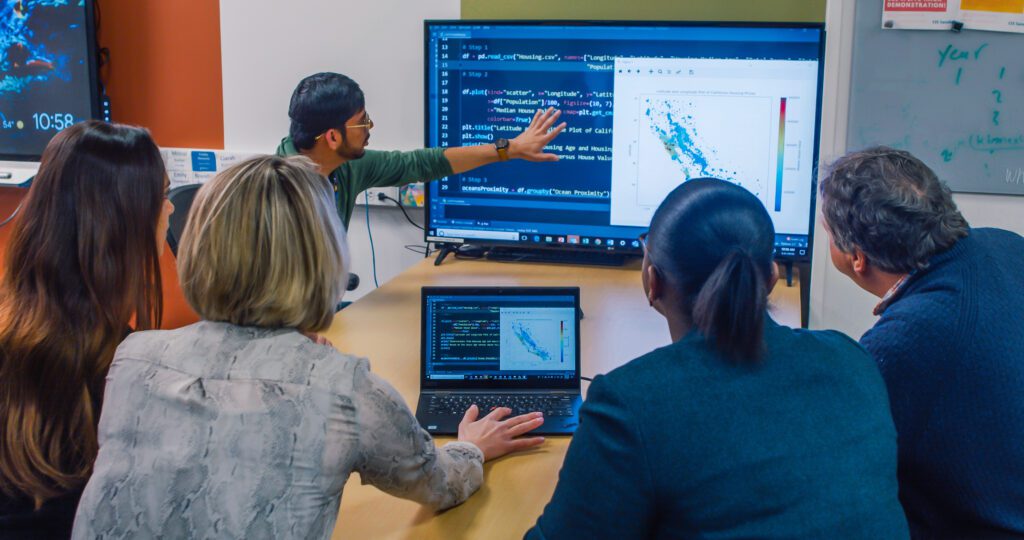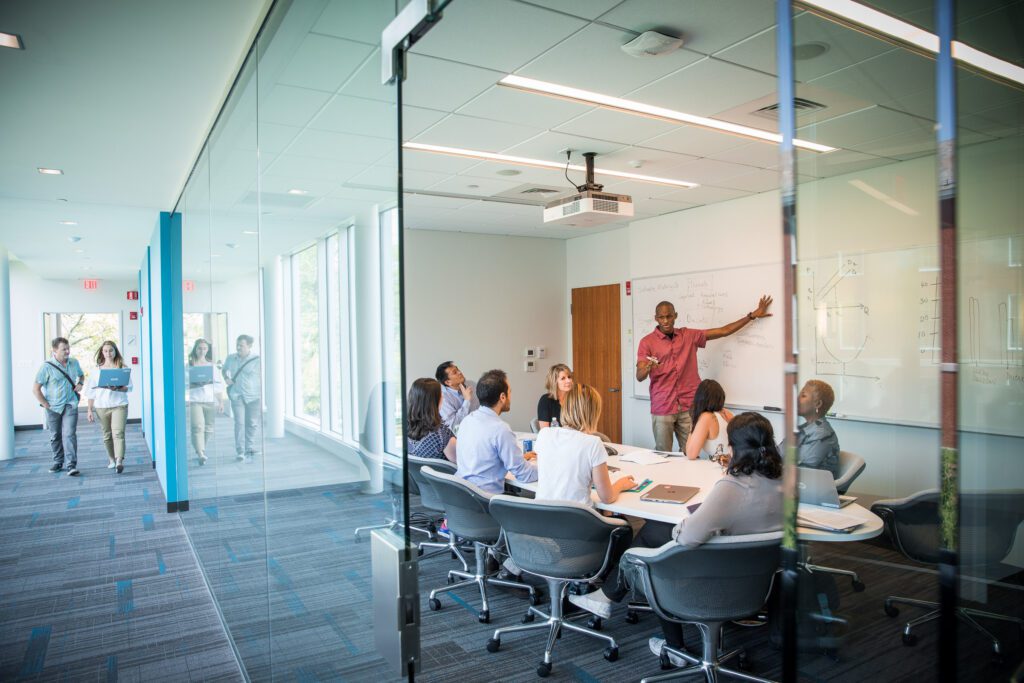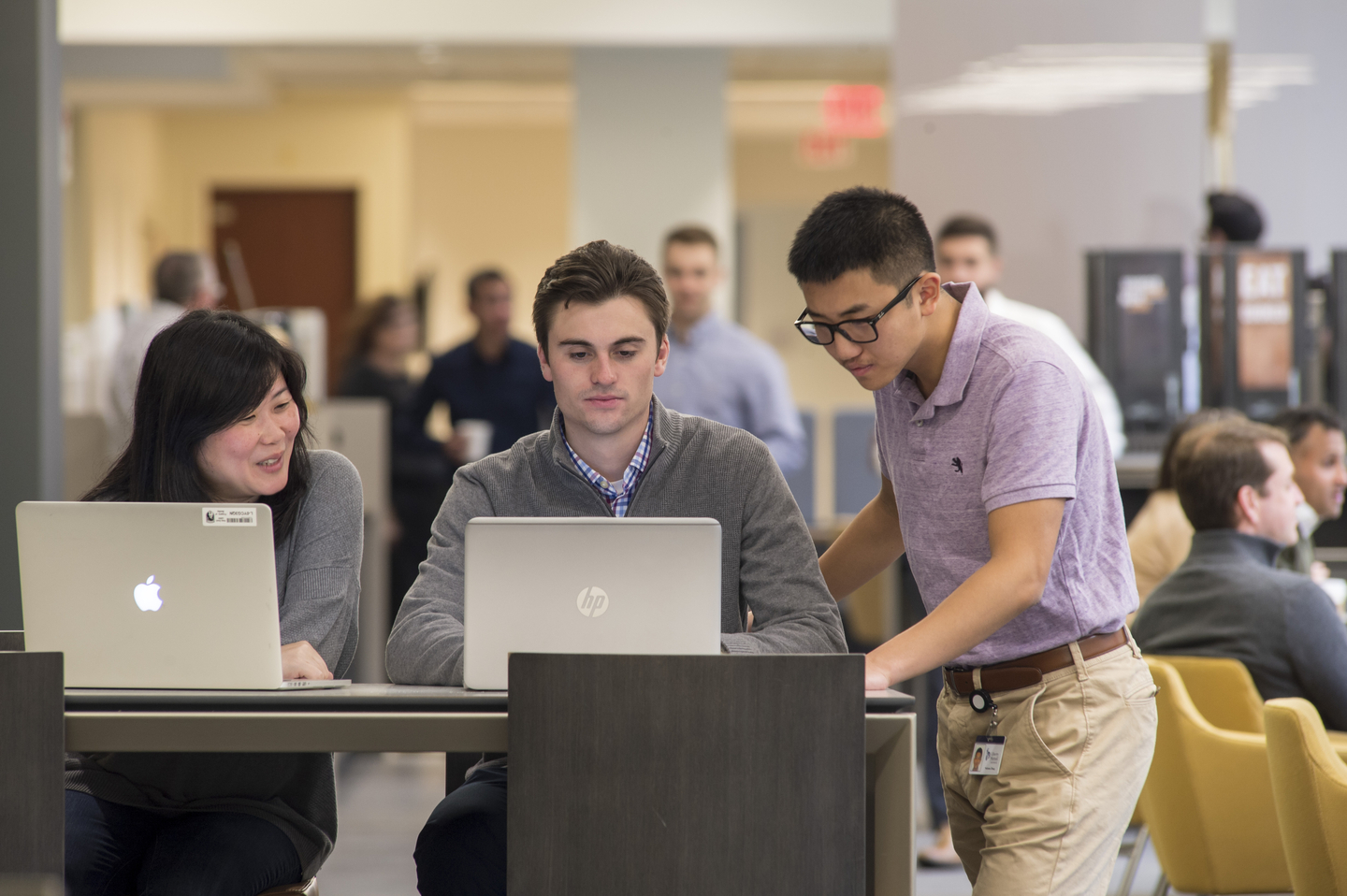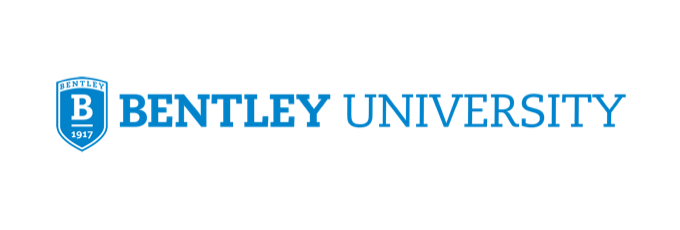Once used mainly to cut costs and improve efficiency, technology is now central to how companies create value. No longer just another tool, technology is now the strategy. According to Capgemini Research Institute’s Investment Trends report, more than two-thirds of executives are making tech convergence their top focus for 2025.
The most emergent technology is AI. That was the view put forward by Sean Ferguson, Bentley University’s Vice President for Strategy and Innovation. Ferguson has worked in a wide array of corporate roles — focused on strategic transformation, business development, and product management — in a diverse range of industries, as well as multiple top ranked schools across the US and Asia.
The experienced educator is clear-eyed about AI’s impact — there’s no business function it hasn’t touched and that’s changing what recruiters are looking for. So, as emerging technologies scale at speed, how can today’s executives educate themselves to lead in a world where business and technology are no longer separate?

Bentley’s STEM business programmes combine theory with real-world practice. You’ll learn to use technology effectively, analyse data, and make informed decisions that help organisations succeed. Source: Bentley University
Educating for an AI-driven world
AI is transforming the way businesses operate today at an “unprecedented scale,” according to Ahmad Aljanaideh, assistant professor in Computer Information Systems at Bentley University. “It’s automating workflows, sharpening decision-making with advanced analytics, and pushing efficiency to new heights. But it’s also raising tough questions about ethics, transparency, trust, and the role of human judgment.”
Bentley, ranked #1 most innovative in the regional north, was built to meet this moment. “Bentley is able to integrate technology differently because of how our institution is structured. We are a business university that brings together business disciplines and the arts and sciences in one institution, allowing for true collaboration across areas of study,” says Ferguson.
The focus here is less about the underlying theoretical elements of technology, but on its application for business transformation and growth. “As a result, we excel at preparing our students with future-focused skills employers’ demand,” says Ferguson.
Those skills can be grouped into two categories: technical and durable. “Technology related skills, like using AI tools, are increasing. However, the need for durable skills like strategic thinking and problem-solving remain at the top,” Ferguson explains. “Other durable skills that are moving up the list include global business skills, another set of skills that Bentley is highly focused on and is using technology to build. For example, one of our courses is leveraging VR to put students directly in a global experience so they can practise their cross-cultural relationship building skills.”
From fintech to business analytics
The capabilities Ferguson speaks of are central to Bentley’s graduate degrees.
The Master’s in Finance, ranked #1 in the US by the Financial Times, offers a Fintech major, which is taught by both the finance and computer information systems departments. By exploring emerging fields like blockchain, AI, data analytics and cybersecurity, modules arm students with the skills for in-demand roles including financial analyst, blockchain developer, and risk management specialist.
The Master’s in Accounting, the first programme in Massachusetts to earn separate Association to Advance Collegiate Schools of Business (AACSB) accreditation, equips graduates to do more than balance books. Working with KPMG’s Data and Analytics Programme, it integrates big data, analytics, blockchain, and machine learning.
With the Master’s in Business Analytics, students develop the analytical edge to interpret data, solve problems, and drive business results. Meanwhile, the STEM MBA has multiple tracks that integrate business and analytics. The newest major in the STEM MBA, Artificial Intelligence, equips you with data management, analytics, and AI technology expertise to shape smarter, more efficient business strategies.
“For business students, learning technical skills is not only about developing the technology, but also about connecting it to broader applications to make positive impact,” explains Aljanaideh. “The recently launched AI major requires coursework across multiple departments including Computer Information Systems, Philosophy, and Mathematics. In addition, collaborations among faculty on research and teaching strategies help in creating an environment where students can see how those disciplines intersect.”

Bentley invests in centres that bring business and technology together, helping graduate students become agile, data-driven leaders. Source: Bentley University
An ecosystem built for good business
Bentley augments its interdisciplinary, technology-forward curricula with state-of-the-art facilities that prepare students to do good business, combining technical excellence with ethical impact. Small, interactive classes use real-world tools like Peachtree, Bloomberg, and SAP. Additional resources include VR and Haptics Labs, a Trading Room, CIS Sandbox, Economics and Accounting Lab, and UX Center. These hands-on environments allow students to apply classroom theory to practical scenarios, building technical proficiency and professional confidence before graduation.
Faculty hires follow the same good business ethos, blending business expertise with social responsibility. For example, Roman Beck, an expert in decentralized finance, ensures the curriculum is current, hands-on, and focused on advanced human-machine interaction. Meanwhile, Aljanaideh’s work in Explainable AI aims to build transparent models that explain their decisions. This is “crucial science” to him, as AI is about performance just as much as it’s about transparency, given how much it’s now being used to make decisions that impact people’s lives. He sees it as an educator’s duty to inform students of the implications of adopting AI in various applications.
“I work on bringing this perspective into Bentley’s STEM-designated programmes by helping students build not just the technical skills to design AI systems, but also the awareness to think about how those systems affect people and businesses in the real world,” he says. It’s the essence of good business: using artificial intelligence with human intelligence to create impact beyond the bottom line.
Follow Bentley University on YouTube, TikTok, Facebook, X, Instagram, and LinkedIn














